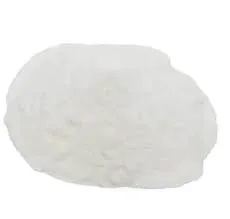
Sep . 07, 2024 13:20 Back to list
Hydroxyethyl Cellulose Uses
Hydroxyethylcellulose (HEC) is a water-soluble polymer derived from cellulose, a natural polymer obtained from plants. It has gained widespread use across various industries due to its versatile properties, making it an essential ingredient in many applications. This article will explore the diverse uses of hydroxyethylcellulose and its significance in different fields.
One of the primary uses of hydroxyethylcellulose is in the cosmetics and personal care industry. It functions as a thickening agent, providing desirable viscosity and texture to products such as lotions, creams, and gels. HEC enhances the spreadability of formulations, allowing for a smoother application on the skin. Additionally, it stabilizes emulsions, preventing the separation of oil and water phases in creams and ointments. Its ability to retain moisture makes it an ideal ingredient for hydrating products, contributing to improved skin hydration and overall appearance.
.
HEC is also extensively used in the food industry. It acts as a thickener, emulsifier, and stabilizer in various food products, such as sauces, dressings, and dairy products. Hydroxyethylcellulose helps maintain the desired texture and consistency of these products while improving shelf life. Its gluten-free nature makes it an attractive alternative for gluten-containing thickeners, catering to the growing demand for gluten-free food options among consumers.
hydroxyethylcellulose uses

In construction and building materials, hydroxyethylcellulose plays a crucial role as a water-retaining agent in cement and plaster formulations. It enhances the workability of these materials, allowing for easier application and improved adhesion to surfaces. Additionally, HEC helps control the setting time of mortars and improves the mechanical properties of concrete, contributing to the durability and longevity of construction projects.
Furthermore, hydroxyethylcellulose finds applications in the field of agriculture. It is used as a soil conditioner and a thickener in pesticide formulations. By improving the consistency and stability of these products, HEC enhances their efficacy, allowing for better absorption and retention in the soil. This application contributes to sustainable agricultural practices by promoting efficient use of resources.
In conclusion, hydroxyethylcellulose is a versatile polymer with a wide range of applications across various industries. Its properties as a thickening agent, binder, and stabilizer make it invaluable in cosmetics, pharmaceuticals, food production, construction, and agriculture. With the increasing demand for natural and functional ingredients, the significance of hydroxyethylcellulose is poised to grow even further in the coming years. As industries evolve, HEC will undoubtedly continue to play a critical role in the development of innovative products that cater to consumer needs and preferences.
-
Versatile Hpmc Uses in Different Industries
NewsJun.19,2025
-
Redispersible Powder's Role in Enhancing Durability of Construction Products
NewsJun.19,2025
-
Hydroxyethyl Cellulose Applications Driving Green Industrial Processes
NewsJun.19,2025
-
Exploring Different Redispersible Polymer Powder
NewsJun.19,2025
-
Choosing the Right Mortar Bonding Agent
NewsJun.19,2025
-
Applications and Significance of China Hpmc in Modern Industries
NewsJun.19,2025







